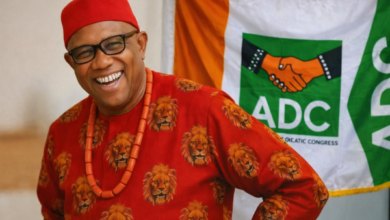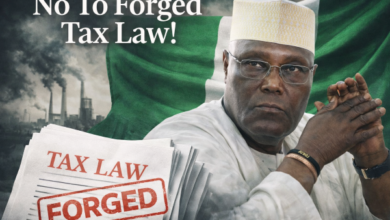Peter Obi Reaffirms 4-Year Term Pledge, Says ‘Impact, Not Tenure, Defines Leadership’

In a political climate where broken promises and tenure extension plots are all too familiar, former presidential candidate and Labour Party flagbearer, Mr. Peter Obi, has restated his firm commitment to serve only a single four-year term if elected Nigeria’s president. In a detailed post on his verified X (formerly Twitter) handle, Obi described his vow as “sacrosanct”—rooted in conviction, not political convenience.
Obi’s renewed pledge comes amid mounting skepticism about politicians’ credibility, as Nigerians continue to grapple with trust deficits in leadership and governance. But in an unusual show of accountability, the former Anambra State governor doubled down on his commitment to deliver measurable transformation within one constitutional term.
“Forty-eight months is enough for any leader who is focused and prepared to make a meaningful difference,” Obi declared.
Purpose Over Power: Obi’s Leadership Philosophy
Citing global and African leadership icons, Obi pointed to Abraham Lincoln, John F. Kennedy, and Nelson Mandela—leaders who served for short periods but left indelible marks on governance and humanity.
“Mandela, despite overwhelming public pressure, chose to serve only one term. His decision was a deliberate act of leadership—a statement that power must serve the people, not the self,” Obi wrote.
He criticized Africa’s entrenched leadership culture where elongated tenures often breed authoritarianism and corruption. “The longer many African leaders remain in power, the more likely they are to be corrupted by it,” he warned.
In contrast, Obi argued that brevity in office, guided by purpose and accountability, should be the new standard of statesmanship. His single-term promise is thus positioned not as a gimmick but as a deliberate signal of disruption—one meant to restore faith in public service.
Track Record Over Rhetoric: “My Word is My Bond”
Taking a jab at cynics who questioned his sincerity, Obi said he was not deterred by ridicule or disbelief. “One person said that even if I swore by a shrine, I wouldn’t be believed. Another suggested psychiatric evaluation,” he revealed.
He attributed the public’s skepticism to decades of political betrayal. But Obi insists he is not like others: “I have a verifiable track record that speaks louder than speculation.”
He recalled his tenure as Governor of Anambra State, during which he executed measurable reforms in education, healthcare, infrastructure, and prudent fiscal management—without deviating from his promises.
“I did not swear by a shrine, nor have I been certified mentally unstable for keeping my word,” he said, in a tongue-in-cheek rebuttal to critics.
Obi’s 4-Year Agenda: Focused, Measurable and Actionable
Obi’s promise is more than a timeline—it is a blueprint for accelerated reform. He outlined an ambitious but targeted governance plan for his proposed four-year term:
- Sanitising governance systems with transparency and efficiency
- Combating insecurity through accountable deployment of national resources
- Revamping education and healthcare as national priorities
- Tackling poverty through social interventions and inclusive growth
- Empowering MSMEs as growth engines for job creation and innovation
- Transforming Nigeria into a productive economy driven by agriculture, manufacturing, and technology
He emphasized that these goals are not utopian but practical—achievable within 48 months of disciplined and focused leadership.
Political and Economic Implications
Obi’s one-term vow stands in sharp contrast to Nigeria’s history of “sit-tight” leadership, where incumbents often manipulate the system to retain power or influence beyond constitutional limits. His pledge, if honored, could reset political expectations and usher in a new era of performance-based legitimacy rather than tenure-based entitlement.
From a business perspective, his emphasis on economic productivity, MSME support, and governance reform aligns with Nigeria’s urgent need for investor confidence, sustainable job creation, and inclusive economic growth.
But the bigger challenge lies in execution—and in whether Nigeria’s political establishment and civil society can hold him, or any leader, accountable to such pledges.
BRANDECONOMY ANALYSIS: Rebuilding Trust Through Contractual Leadership
Peter Obi’s 4-year vow represents a bold deviation from Nigeria’s leadership orthodoxy. In a nation fatigued by political doublespeak and economic stagnation, his message resonates with a growing demographic of young, digitally engaged citizens yearning for real change.
If Obi’s proposition gains traction, it could mark a paradigm shift—from personality politics to performance politics. It’s a call to redefine leadership as a contract, not a career; a mission, not a monarchy.
But promises, no matter how noble, must be tested by action. As Nigeria inches toward its next political cycle, the real question will be: can Obi—or anyone—restore trust, deliver reforms, and walk away after just one term?
Only time, and the electorate, will tell.












